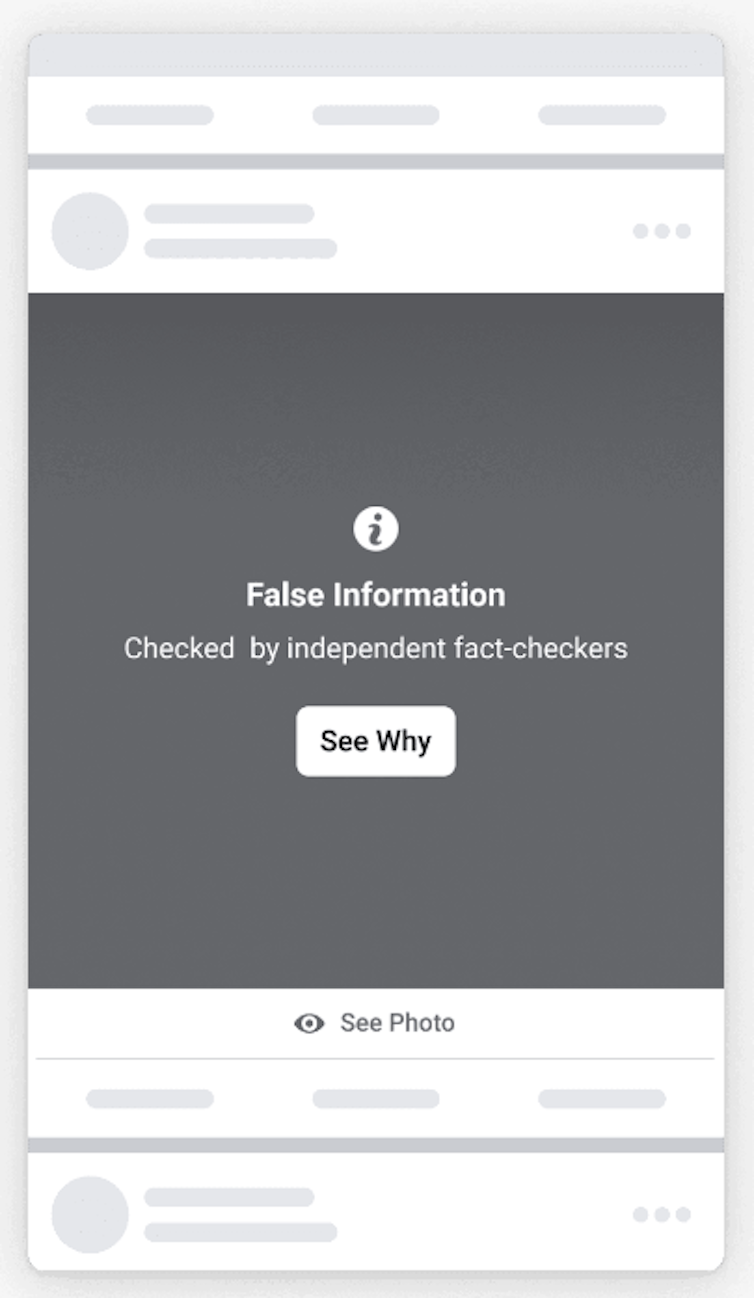Meta has introduced it is going to abandon its fact-checking program, beginning in the USA. It was geared toward stopping the unfold of on-line lies amongst greater than 3 billion folks who use Meta’s social media platforms, together with Fb, Instagram and Threads.
In a video, the corporate’s chief, Mark Zuckerberg, mentioned reality checking had led to “an excessive amount of censorship”.
He added it was time for Meta “to get again to our roots round free expression”, particularly following the latest presidential election within the US. Zuckerberg characterised it as a “cultural tipping level, in the direction of as soon as once more prioritising speech”.
As an alternative of counting on skilled reality checkers to average content material, the tech large will now undertake a “neighborhood notes” mannequin, just like the one utilized by X.
This mannequin depends on different social media customers so as to add context or caveats to a submit. It’s at present below investigation by the European Union for its effectiveness.
This dramatic shift by Meta doesn’t bode nicely for the struggle in opposition to the unfold of misinformation and disinformation on-line.
View this submit on Instagram
Impartial evaluation
Meta launched its unbiased, third-party, fact-checking program in 2016.
It did so throughout a interval of heightened concern about info integrity coinciding with the election of Donald Trump as US president and furore in regards to the function of social media platforms in spreading misinformation and disinformation.
As a part of this system, Meta funded fact-checking companions – comparable to Reuters Reality Verify, Australian Related Press, Agence France-Presse and PolitiFact – to independently assess the validity of problematic content material posted on its platforms.
Warning labels have been then connected to any content material deemed to be inaccurate or deceptive. This helped customers to be higher knowledgeable in regards to the content material they have been seeing on-line.
A spine to international efforts to struggle misinformation
Zuckerberg claimed Meta’s fact-checking program didn’t efficiently tackle misinformation on the corporate’s platforms, stifled free speech and result in widespread censorship.
However the head of the Worldwide Reality-Checking Community, Angie Drobnic Holan, disputes this. In a assertion reacting to Meta’s choice, she mentioned:
Reality-checking journalism has by no means censored or eliminated posts; it’s added info and context to controversial claims, and it’s debunked hoax content material and conspiracy theories. The actual fact-checkers utilized by Meta observe a Code of Ideas requiring nonpartisanship and transparency.
A big physique of proof helps Holan’s place.
In 2023 in Australia alone, Meta displayed warnings on over 9.2 million distinct items of content material on Fb (posts, pictures and movies), and over 510,000 posts on Instagram, together with reshares. These warnings have been based mostly on articles written by Meta’s third-party, fact-checking companions.

Quite a few research have demonstrated that these sorts of warnings successfully gradual the unfold of misinformation.
Meta’s reality‐checking insurance policies additionally required the associate reality‐checking organisations to keep away from debunking content material and opinions from political actors and celebrities and keep away from debunking political promoting.
Reality checkers can confirm claims from political actors and submit content material on their very own web sites and social media accounts. Nevertheless, this reality‐checked content material was nonetheless not topic to diminished circulation or censorship on Meta platforms.
The COVID pandemic demonstrated the usefulness of unbiased reality checking on Fb. Reality checkers helped curb a lot dangerous misinformation and disinformation in regards to the virus and the effectiveness of vaccines.
Importantly, Meta’s fact-checking program additionally served as a spine to international efforts to struggle misinformation on different social media platforms. It facilitated monetary assist to as much as 90 accredited fact-checking organisations all over the world.
What affect will Meta’s adjustments have on misinformation on-line?
Changing unbiased, third-party reality checking with a “neighborhood notes” mannequin of content material moderation is prone to hamper the struggle in opposition to misinformation and disinformation on-line.
Final 12 months, for instance, studies from The Washington Put up and The Centre for Countering Digital Hate within the US discovered that X’s neighborhood notes function was failing to stem the circulate of lies on the platform.
Meta’s flip away from reality checking may even create main monetary issues for third-party, unbiased reality checkers.
The tech large has lengthy been a dominant supply of funding for a lot of reality checkers. And it has usually incentivised reality checkers to confirm sure sorts of claims.
Meta’s announcement will now probably drive these unbiased reality checkers to show away from strings-attached preparations with personal firms of their mission to enhance public discourse by addressing on-line claims.
But, with out Meta’s funding, they’ll probably be hampered of their efforts to counter makes an attempt to weaponise reality checking by different actors. For instance, Russian President Vladimir Putin just lately introduced the institution of a state fact-checking community following “Russian values”, in stark distinction to the Worldwide Reality-Checking Community code of rules.
This makes unbiased, third-party reality checking much more crucial. However clearly, Meta doesn’t agree.![]()
- Ned Watt, PhD Candidate, Digital Media Analysis Centre, Queensland College of Know-how; Michelle Riedlinger, Affiliate Professor in Digital Media, Queensland College of Know-how, and Silvia Montaña-Niño, Lecturer, Centre for Advancing Journalism, The College of Melbourne
This text is republished from The Dialog below a Artistic Commons license. Learn the unique article.

